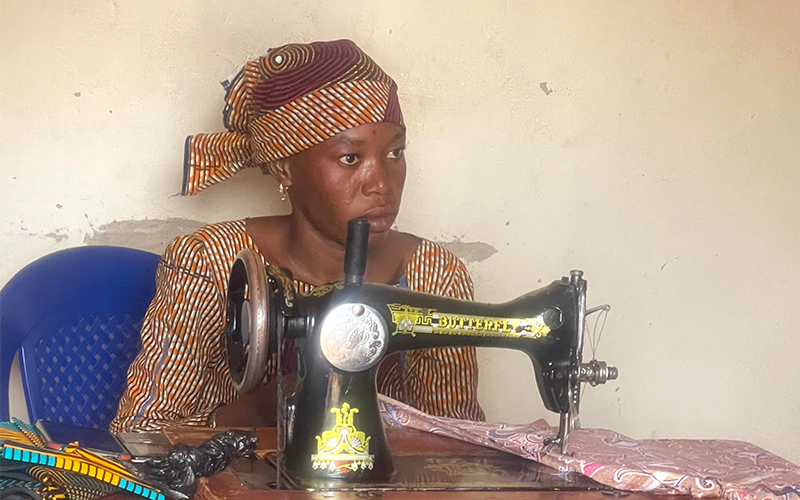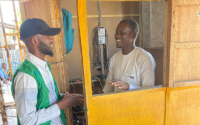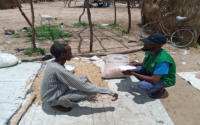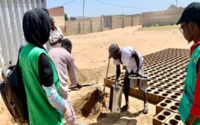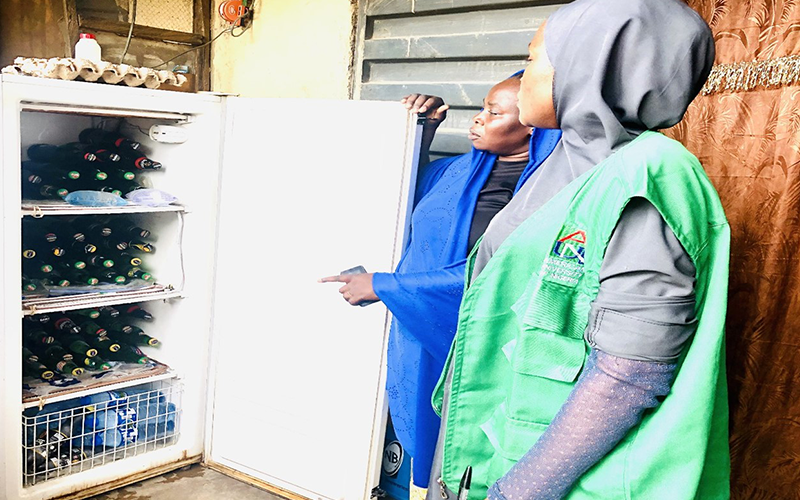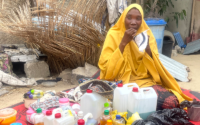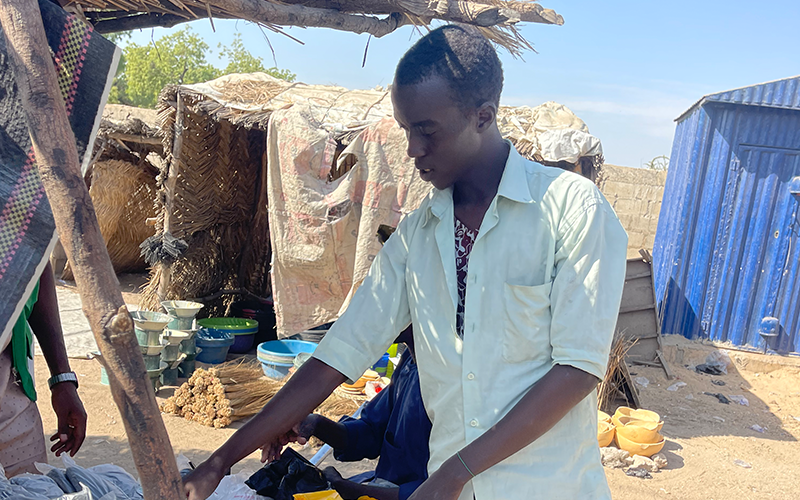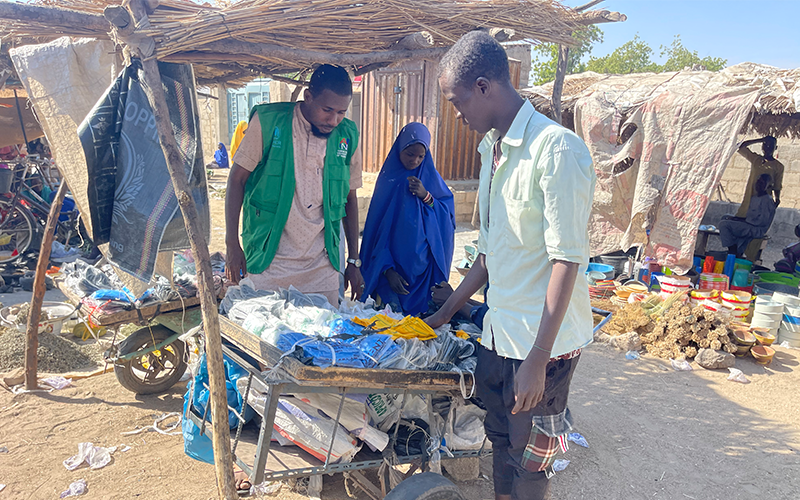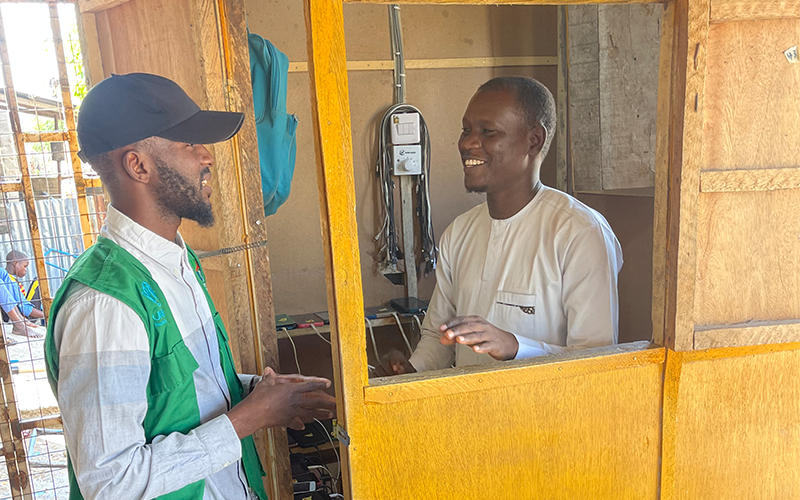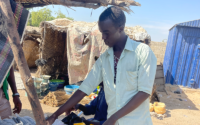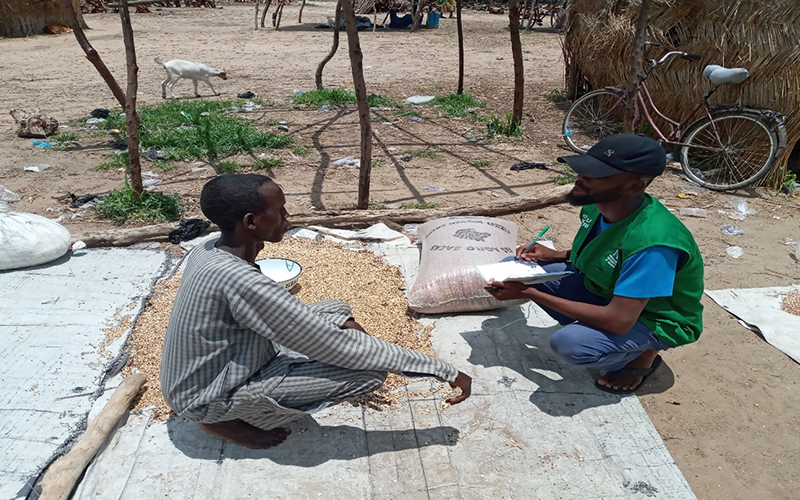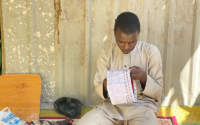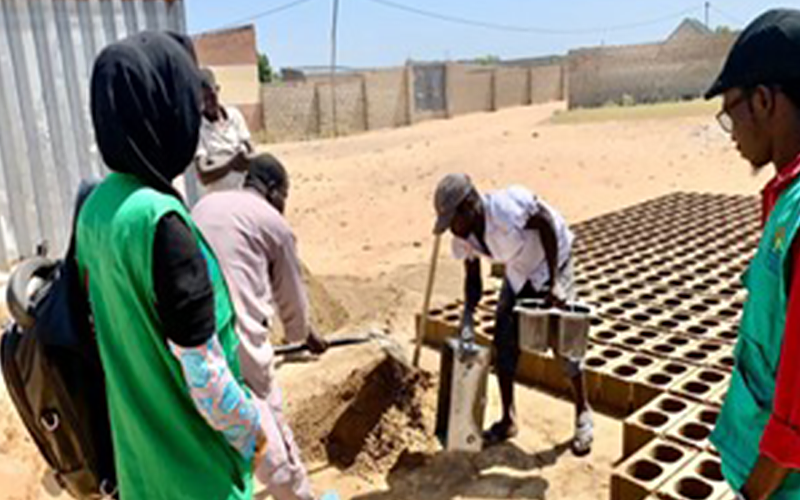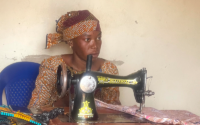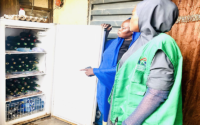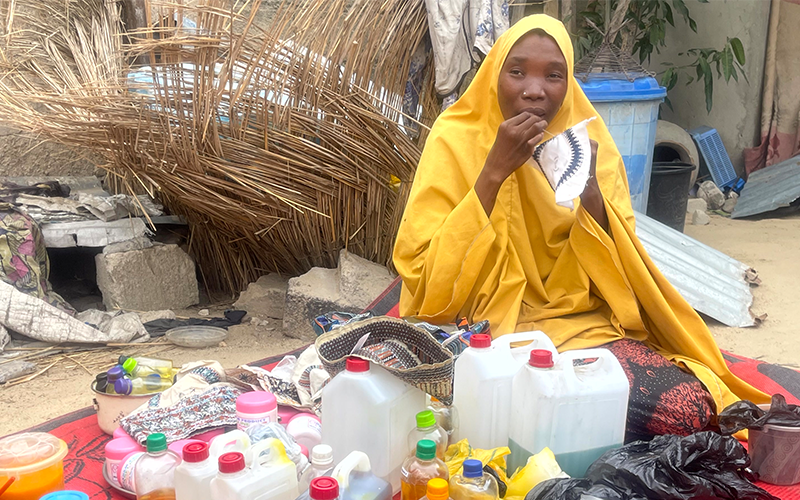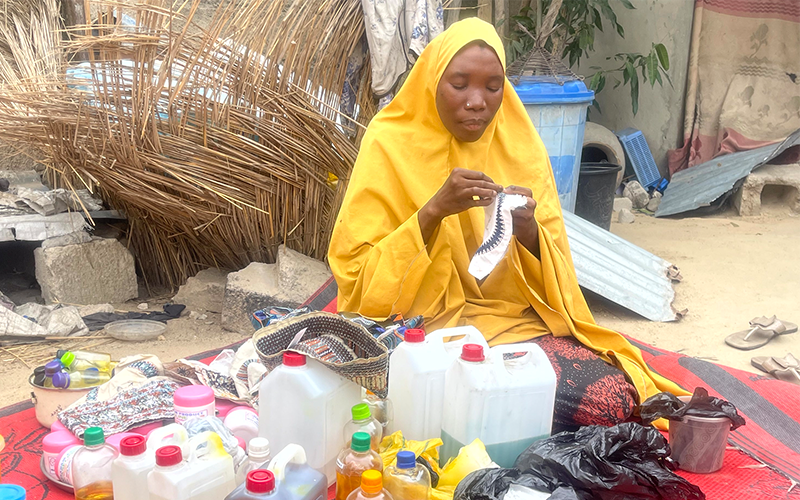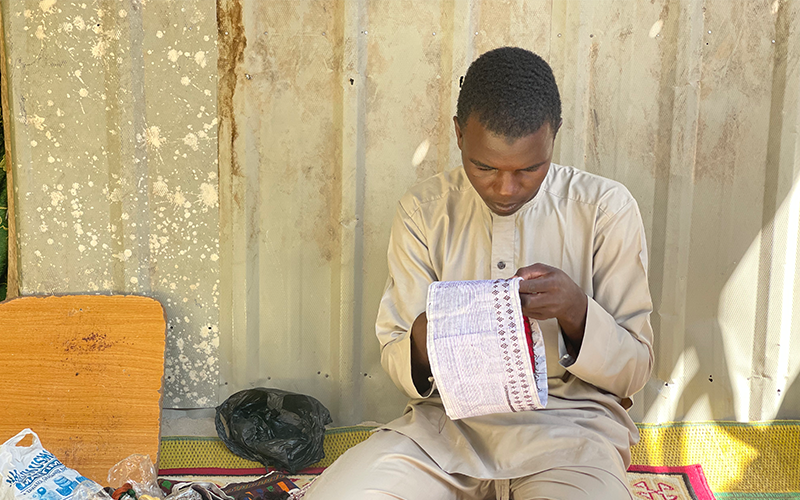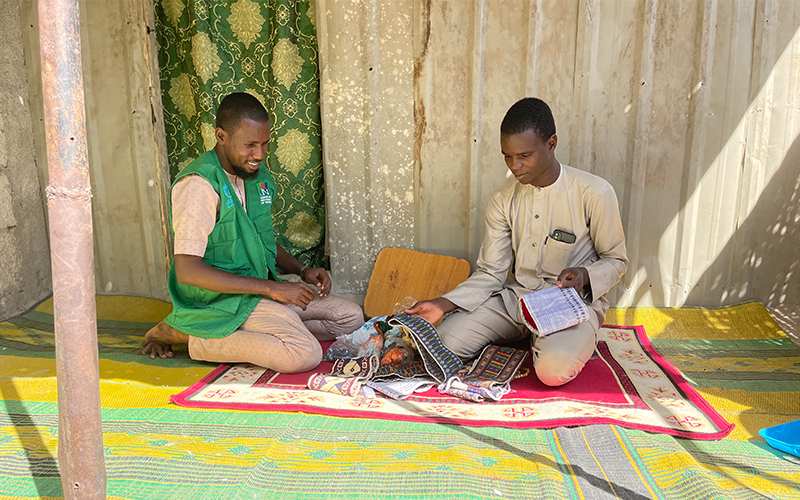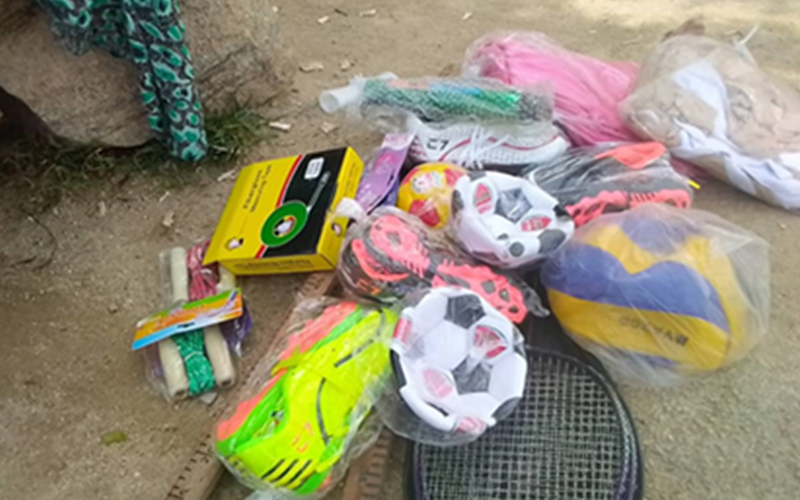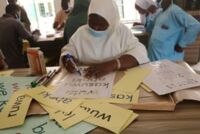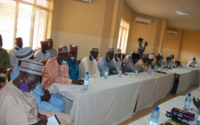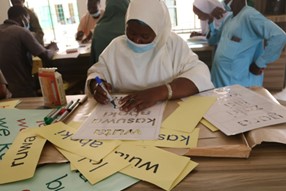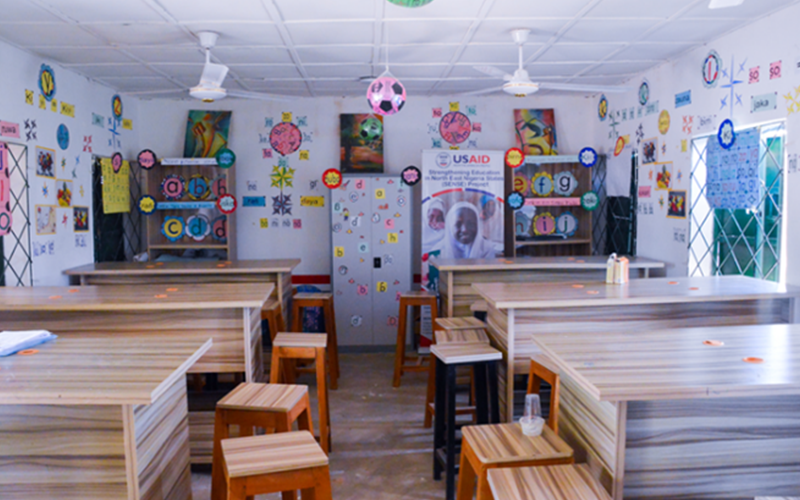Impact Of Livelihood Program on Safiya Musa
Safiya Musa and her family (2 sons and 4 daughters) were displaced from Gamboru Ngala and fled to Mouruwa in Cameroun to seek refuge. They stayed for months before they were conveyed to Maiduguri, the Borno State Capital. They were camped in the Teachers Village Camp (TVC) by the State Government when they arrived from Cameroun. She and her family stayed in TVC for 8 years before it was closed by the Government; she stayed back in Musari Community in the State capital and was given a piece of land (with no building) to stay temporarily.
The owner of the land allowed her to build a temporary shelter to stay until the need for land arose. She could build a makeshift roof with the little money she had.
Safiya’s parents were killed by the insurgents; she was traumatized. She encountered many difficulties in Mouruwa, from water, food, and shelter to an extent; sometimes, she and the family stayed for days without taking a shower and only ate once a day, sometimes twice. Fortunately, when she arrived at TVC, and was registered and given shelter to stay, they were assisted by the humanitarian aid workers.
In 2022, when the TVC camp was closed, she moved into the Musari Community. Weeks later, the UNHCR Protection Partner GISCOR came to Musari to search for those with a UNCHR Card Token Number, and Safiya was verified and found eligible for assistance.
Weeks later, the American University of Nigeria team came to Muasri and conducted the interview; she was fortunate to be called by the AUN Team and was scheduled for Tailoring trade training.
Soon, the AUN Office invited her to the Women’s Development Centre, and she was trained. All beneficiaries were given transport stipends daily for the whole period of the training program. They were also taught Business Development and Financial Literacy.
After completing weeks of tailoring, Safiya was taken to Maiduguri Monday Market to select a sewing machine of my choice along with tools and materials needed for the tailoring business, and also 10,000 Naira was sent to her account as working capital; later, she got a sustenance allowance for 3 months that help her take care of her family before my business grew and established.
POSITIVE IMPACT
- I rented a shop for my tailoring business in my neighboring community, where I am currently doing my tailoring business.
- With the profit margin I earned from the tailoring business, I export goods like; Grasshopper, sewed fabrics, and children’s wear from Maiduguri to Njamaina in Chad and Moura in Cameroun because those goods are in demand there, and more profitable than are sold here.
- Myself and my husband joined hands to buy a quarter plot of land and build 2 rooms.
- I and my husband contributed to taking care of our family, and 3 of the kids are now in school.
- We are fully settled in Maiduguri; I don’t think we will return to Gamboru Ngala, my place of initial displacement.
- The beneficiary is doing well, and she is open to others who are willing to learn from her.
